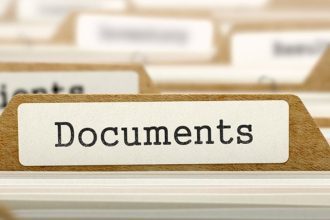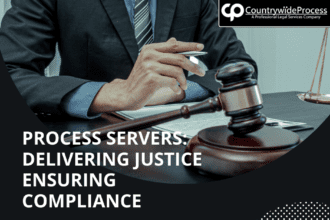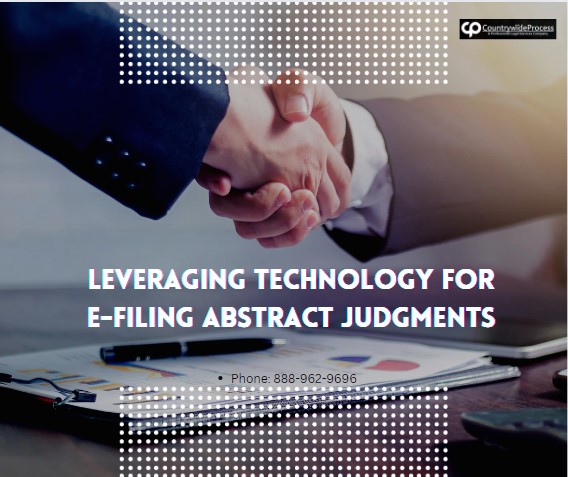It is an era where all sectors, including the legal industry, cannot be left behind in the adoption of digital technology. A field that has been known to adopt paper-based systems and manual filing has seen a major shift towards the use of technology solutions. A major development in this area is the use of e-filing, particularly for e-filing abstract judgments. These changes are not simple improvements to reduce bureaucracy, as commonly seen in most professions, but a true transformation of efficiency, accuracy, and availability in the legal industry.
Benefits Of E-Filing Abstract Judgments
E-filing abstract judgments has the following advantages: it transforms legal proceedings in the manner in which they are conducted and implemented on the digital platform. Firstly, it does away with the paperwork and time spent physically sorting and retrieving files, as with traditional filing. When it comes to paperless work, routine practices help to arrange and share with colleagues and client’s case-related papers and documents digitally and in a very effective manner. This not only cuts down on some time that may be used to undertake unnecessary peripheral tasks but also minimizes the chances of getting it wrong or losing such information.
Secondly, e-filing also helps in sharing information and achieving interaction between all parties engaged in the legal process. Through custom technology web portals, judges, attorneys, clients, and other relevant interested parties can tweak and access corresponding documentation and updates, thus improving the visibility of all proceedings. Furthermore, electronic filing systems may enhance notification systems and prompt reminders on the due dates or the next course of action to be taken.
Also, e-filing records is desirable because it means a reduced usage of paper and other resources in handling the cases. The adoption of digital procedures and processes in law firms as well as within the judicial system has the potential to assist firms in the conservation of natural resources used in the production of paper, in addition to saving money that would otherwise be spent on printing, storage.
Challenges in overcoming the compliance processes and arrangements of e-filing abstract judgments
Despite the immense benefits of e-filing abstract judgments that are available and viable, there are different challenges that must be met to facilitate proper implementation, and this paper will establish them to meet the requirements of regulatory compliance. Another issue within the framework of this field is the protection of data and information. Legal papers involve information that is private to organizations and individuals and, as such, must be protected from persons with malicious intent or anyone else who intends to corrupt them through cyberattacks. Adopting sound encryption of electronic filings, the choice of access control measures, and proper means of authentication are essential to ensuring filings’ integrity and confidentiality.
However, interfaces and formatting are also issues where multi-platform is the case, and there are several ways to e-filing in a particular jurisdiction. There is often a need for achieving consistency and standardization of the indexes and forms of data across various systems, which become crucial factors for data sharing and integration between courts, lawyers, and other participants in the legal chain process. Also, the goal of making the e-filing systems more accessible to all kinds of clients becomes critically important since it is important to avoid differentiation and provide equal opportunities to all people by implementing the principles of justice. This will include providing relevant training and assistance to legal practitioners, parties to proceedings, and any other persons involved in the filing of documents in the electronic environment. Moreover, it is also necessary to put measures in place that would address issues of equal access for users who may be physically challenged or those who cannot easily access computers or other digital gadgets, as well as clients who may not easily access the internet.
Conclusion
The implementation of abstract judgments in the form of e-filing abstract judgments represents a major advancement in the ability of legal systems to become more efficient and streamline the processes of the acquisition of legal actions. Mitigating the best efficiency of current technologies allows legal persons to welcome a future that focuses on administration, communication, and environmental friendliness. Nevertheless, challenges such as data security, compatibility, and access transcend individual effort and assume collective solutions from all the related stakeholders in the legal domain. In this case, it is crucial to consider not only the nature of specific tasks but also the availability of necessary resources and adaptation to such key megatrends as digitalization of the legal industry and so on. In this manner, the industry can set an example for other sectors and plan for the future of the legal profession that is efficient, egalitarian, and sustainable.





